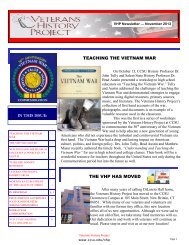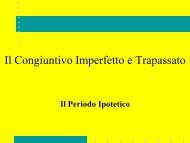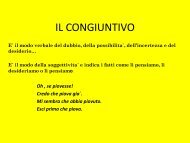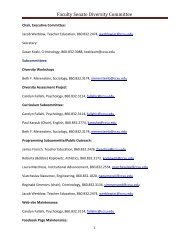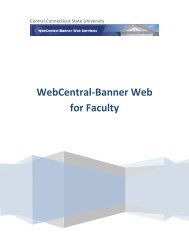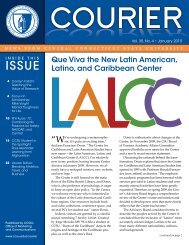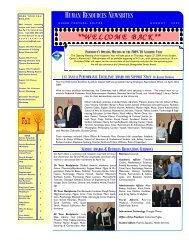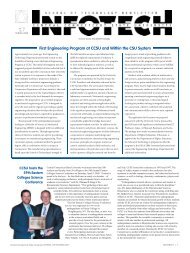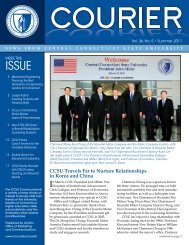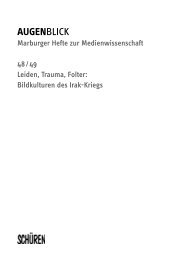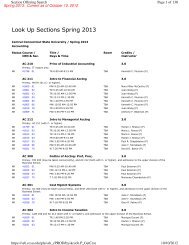Report - Central Connecticut State University
Report - Central Connecticut State University
Report - Central Connecticut State University
Create successful ePaper yourself
Turn your PDF publications into a flip-book with our unique Google optimized e-Paper software.
Department of Anthropology 2011-12 Annual <strong>Report</strong><br />
School of Arts & Sciences <strong>Central</strong> <strong>Connecticut</strong> <strong>State</strong> <strong>University</strong><br />
Section 2 Program Summary: Anthropology (BA)<br />
Program Rationale or Mission<br />
The Anthropology program is designed to provide students with a broad and comprehensive social and<br />
behavioral science background and to prepare them for a range of careers, from education to public<br />
service to marketing and international management. The department also offers minors in cultural<br />
anthropology, archaeology, practicing anthropology, and biological anthropology. These programs give<br />
the student a holistic and cross-cultural perspective that would complement majors beyond one in<br />
anthropology.<br />
Learning Outcomes<br />
Students in the Anthropology Program will be expected to demonstrate the following Learning Outcomes:<br />
1. A broad knowledge of the foundations of the entire holistic discipline and an appreciation of<br />
the interrelated nature of the discipline’s subfields.<br />
2. Hands-on experience in at least one area of anthropological practice.<br />
3. Knowledge of at least one world area, spatially or temporally defined.<br />
4. Ability to utilize relevant methods of data collection and statistical analysis.<br />
5. Ability to conceptualize, organize, and carry out research or project development, and to<br />
present such in oral and written form.<br />
Significant Curricular Changes in 2011-12<br />
We are re-numbering the two required methods courses for the major, ANTH 374 Field Research<br />
Methods and ANTH 375 Data Analysis, to the 200-level, to a) encourage majors to take these courses<br />
earlier in their career, b) avoid the pile-up of required courses in the junior year and particularly in the<br />
Spring semester of the junior year, and c) provide the students with the research skills earlier in their<br />
career/major.<br />
Students’ Strengths and Weaknesses /Adjustments Made Based on Assessment Findings<br />
We will base our assessment for 2011-2012 on our Fall 2011 Senior Thesis class. Each faculty member<br />
ranked each student for our stated Learning Outcomes. We used the same procedure for the Fall 2010<br />
Senior Thesis class. We found that, as we had stated previously in our Fall Assessment report, our<br />
revised Learning Outcomes worked much better for scoring the student presentations.<br />
Thus, for the Fall 2012 Senior Thesis class we need to:<br />
Finalize our revised assessment rubrics to better evaluate and reflect our reworked Learning<br />
Outcomes.<br />
Finalize our process for recording and sharing of new rubrics for use with next December’s senior<br />
thesis presentations.<br />
Devise mechanism for reporting above in next year’s assessment report.<br />
We are also still planning to use one section of ANTH 140: Introduction to Anthropology for our General<br />
Education assessment.



